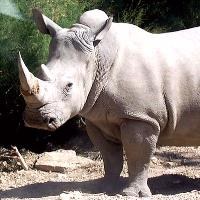(BRUSSELS) – The European Parliament’s environment committee called Thursday for a full and immediate EU-wide ban on ivory and rhinoceros horn trade, and common sanctions at EU level against wildlife trafficking.
Wildlife trafficking has grown to be one of the biggest and most profitable forms of organised cross-border crime, and is worth an estimated EUR 20 billion annually.
The penalties against wildlife trafficking must be very severe to reflect the seriousness of this crime and must be the same across the EU”, said the Environment Committee’s rapporteur Catherine Bearder MEP. “I am also delighted that MEPs are calling for a full and immediate EU-wide ban on the ivory trade, she added.
The committee was scrutinising an Action Plan presented by the Commission which listed a series of measures to be taken by EU institutions and/or member states. The measures are essentially designed to improve cooperation among all the players concerned, make more effective use of existing tools and policies, and strengthen synergies between them, so that wildlife trafficking can be better tackled across the EU and globally.
In the committee’s response, MEPs called for the full and immediate ban at EU level on trade, export or re-export of ivory and rhinoceros horns. They also urged the EU member states to set appropriate levels of penalties for wildlife crime offences, and called on the Commission to work towards establishing common rules for defining criminal offences and sanctions relating to wildlife trafficking.
The EU should also review existing legislation with a view to supplementing it with a ban on the making available and placing on the market, transport, acquisition and possession of wildlife that has been illegally harvested or traded in third countries, MEPs say.
They underlined that trophy hunting has contributed to large-scale declines in certain species, and urge the EU to establish a precautionary approach to deal with imports of hunting trophies from species protected under the EU Wildlife Trade Regulations.
The EU should address corruption and the shortcomings of international governance measures across the wildlife trafficking chain by engaging with partner countries through the UN Convention against Corruption (UNCAC) and elsewhere to tackle the problem at the source, says the text.
The report will be put to a vote by the full House in November.
EU Action Plan against Wildlife Trafficking (Briefing, September 2016


